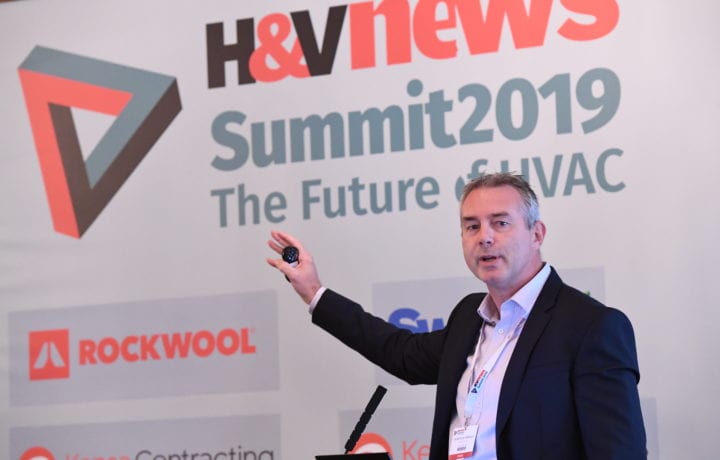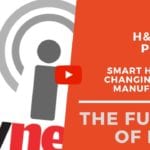Following Dr. Matthew Trewhella, Managing Director of Kensa Contracting, appearing as the Innovation in Action speaker at H&V News’ Future of HVAC Summit, Matthew discusses heat pumps and the challenges posed by the need for national decarbonisation of how we heat our homes in an exclusive interview with H&V News, available to listen to here (Part 1 and Part 2).
Kensa believe heat pumps will be a vital component to realising the government’s commitment to end fossil fuel heated homes by 2025. However despite political interest and expanding heat pump use, consumer adoption remains relatively small. Here Kensa and H&V News explore the need for decarbonisation, the challenges it poses, and the role of heat pumps in the future of HVAC.
Topics Discussed:
- Kensa’s commitment to exclusively produce ground source heat pumps
- The differences between air and ground source heat pumps
- How the Future Homes Standard in 2025 will affect the heat pump market
- Grid balancing and load shifting
- Smart centralised control of heat pumps and vehicle charging
The Future of HVAC Podcast (Part 1): The challenges facing a heat pump revolution
This podcast asks what is the future of HVAC, and questions whether advancements in heat pump technology will mean an end to the dominance of the gas boiler in domestic heating.
Matthew comments:
Remarks made during the summit that claim that the uptake of heat pumps in the UK had so far been “pitiful” were probably a fair assessment.
However, Kensa are fully focused on developing ground source heat pump solutions that can support the UK to curb a reliance on fossil fuel heating.
On the requirements of the government’s proposed Future Homes Standard – currently under consultation as part of its national decarbonisation agenda he argues:
Short to medium term (2-5 years) uptake of the technology is vital to allow the market and supply chain to develop sufficiently to allow an outright ban on the use of fossil fuel heat in new homes from 2025?
Matthew also discusses how financial support programmes such as the Renewable Heat Incentive (RHI)* will remain an important focus for any successful decarbonisation policy.
And therefore dismisses some criticisms made of the programme during the summit that the RHI* had become a “middle-class subsidy” that failed to address the challenge of decarbonising lower income and fuel poor homes.
*Please note, the RHI has now closed.
The Future of HVAC Podcast (Part 2): ‘Smart’ heat and the changing role of manufacturers
The second part of the podcast discussed the changing role of manufacturers from the perspective of technology and innovation, particularly for expanding the appeal of ground source heat pumps.
Matthew comments:
The convergence of ground source heat pumps with smart metering could prove to be significant for the industry but manufacturers will need to get closer to how their products are used and support consumers in optimising these systems by offering a full heating service to make these systems genuinely smart.
On making ‘smart’ truly smart:
If we have the knowledge of a buildings energy needs and knowledge of how much the occupants are likely to need, (how warm they want to be and when), coupled with smart metering technology and time of use electricity tariffs we can come up with an optimised heating plan which manages the comfort and needs of the occupant together with delivering energy at a lower price.
The lovely coincidence is when you do that to save people money you also save carbon. Shifting load around and running the heat pump overnight when background electricity generation technologies (wind and nuclear) are running at their best we can help balance the grid, reduce the carbon and reduce the cost to the consumer all in the same. Consumers experiencing these benefits is only thought to drive the uptake of these technologies.
At Kensa Contracting we already get very intimate with all of the projects with quite detailed project management from start to finish. There is now a definite trend of taking this even further we’re now getting more heavily involved after the fact with the controls and the software after install.






